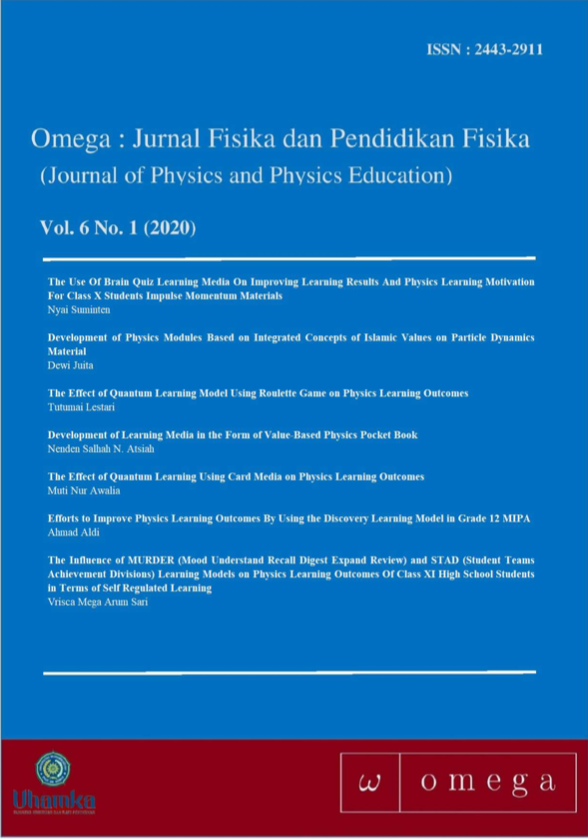Main Article Content
Abstract
It has been investigated the influence of quantum learning models using roulette games on physics learning outcomes. The method used is quantitative methods pre-experimental type, one group pretest-posttest. The sampling technique is purposive sampling, data collection techniques using research instruments in the form of essay questions. The analysis prerequisite test used in this study is the normality test using the Liliefors error estimation test obtained Lcount (0.142, 0.132 and 0.122) < Ltable (0.147) with α = 0.05. For homogeneity test using Bartlett test obtained χ2count (18.44, 29.93, 22.79) < χ2table (30.10) with α = 0.05 and degrees of freedom db = 19. In the hypothesis test using the t-test obtained tcount the first posttest = 30.78, in the second posttest tcount = 45.09, and in the third posttest tcount = 61.71. While ttable = 1.69 at α = 0.05 and ttable = 2.44 at α = 0.01. Then H1 is accepted, so it is concluded that there is a very significant influence on the application of the quantum learning model using roulette game media on physics learning outcomes.

